来源:国政学人
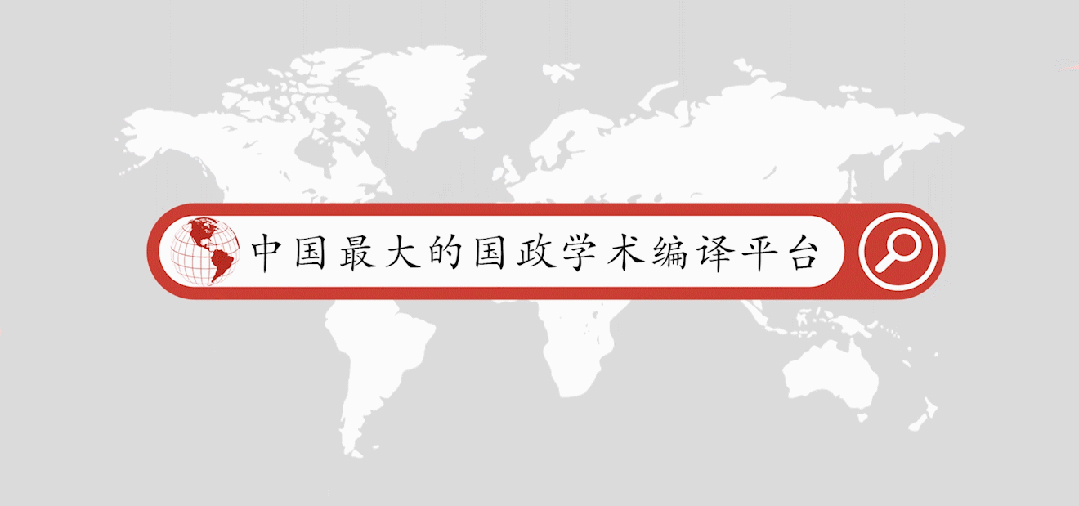
期刊简介
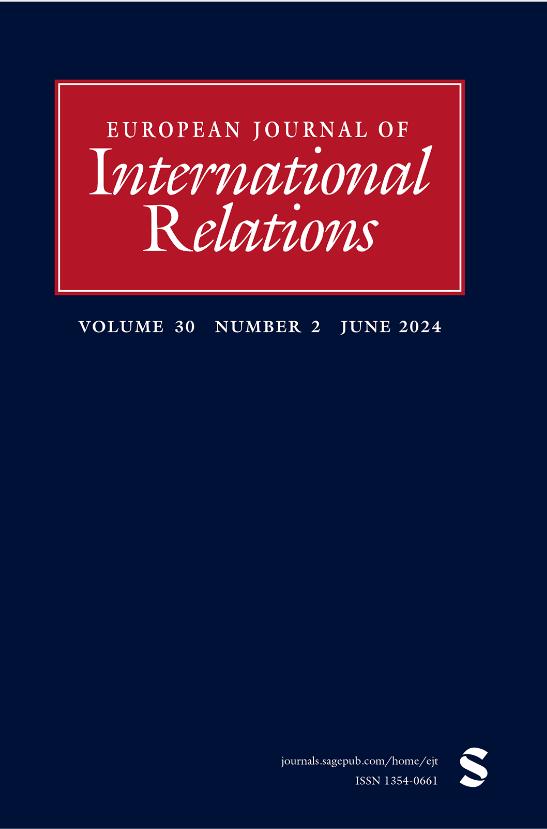
《欧洲国际关系杂志》(European Journal of International Relations)广泛地代表了已在欧洲发展的国际关系领域。自1995年创刊以来,该杂志已成为国际关系学界一个重要而独立的声音。它以其欧洲起源为基础,经过二十多年的发展,已成为国际关系界最佳成果的缩影,包括前沿的理论辩论、当代和过去的学术热点以及理论丰富的实证分析。
本期目录
1
国家失败的来世:殖民主义的回响与余波
The afterlives of state failure: echoes and aftermaths of colonialism
2
情感与安全化:一种新的唯物主义话语分析
Emotions and securitisation: a new materialist discourse analysis
3
历史制度主义与制度设计:通往亚洲和欧洲机制复合体的不同路径
Historical institutionalism and institutional design: divergent pathways to regime complexes in Asia and Europe
4
“文明”世界的多重等级制度:国际劳工组织的国家排名和地区权力(1919-1922)
Multiple hierarchies within the ‘civilized’ world: country ranking and regional power in the International Labour Organization (1919–1922)
5
反对“抵抗”?论国际政治社会学中的差异政治概念
Against ‘resistance’? Towards a conception of differential politics in international political sociology
6
跨国非公民社会网络:窃盗统治对自由行动主义的全球反击
Transnational uncivil society networks: kleptocracy’s global fightback against liberal activism
7
外交如何演变:国家荣誉奖的全球传播
How diplomacy evolves: the global spread of honorific state awards
8
在西方演绎多元世界:沉思行动主义对幻灭的单一世界的挑战
Enacting the pluriverse in the West: contemplative activism as a challenge to the disenchanted one-world world
9
游牧民族与汗国:19世纪中亚的他律与内部秩序
Of nomads and khanates: heteronomy and interpolity order in 19th-century Central Asia
10
跨国倡导运动中的议题采纳和运动结构:纵向网络分析
Issue-adoption and campaign structure in transnational advocacy campaigns: a longitudinal network analysis
内容摘要
国家失败的来世:殖民主义的回响与余波
题目:The afterlives of state failure: echoes and aftermaths of colonialism
摘要:对于失败国家的议程以及殖民话语的重构,本文提供了一个新的视角,并通过将其后遗症理论化予以支持。来生的概念在国际关系的文献中主要是作为隐喻,或是被顺便讨论。从后殖民和非殖民文学中,我们建议将这一概念同时定义为过去的回声和后果。这种来生的概念化旨在有助于研究超越连续性和破裂概念的殖民形式的持久性。本文通过对失败国家议程及其迭代的讨论来发展来世的概念。我们讨论了议程的四个具体迭代:非殖民化时期议程的起源;1990年代初议程的巩固;议程危机与弹性讨论的兴起;最后,脆弱城市议程的兴起是失败国家议程的后遗症之一。为了说明我们的论点,本文中讨论了两个具体的“片段”,通过它们我们可以有效地掌握殖民的回声和后果:脆弱国家和城市的病态化,通过不同的孪生形象(文明/野蛮;强健/失调;弹性/脆弱)及其实际影响;脆弱国家和城市的可视化、地图绘制和彩色编码,体现了失败国家议程的持久性和矛盾性。
This article offers a new perspective on the failed states agenda, and the reconfiguration of colonial discourse buttressing it, by theorising its afterlives. The concept of afterlives has mostly been discussed as a metaphor or in passing in the IR literature. Drawing from the post- and decolonial literature, we propose to define the concept simultaneously as echoes and aftermaths of the past. This conceptualisation of afterlives aims to contribute to the study of the persistence of colonial forms beyond notions of continuity and rupture. We develop the concept of afterlives through a discussion of the failed states agenda and its iterations. We discuss four specific iterations of the agenda: the genesis of the agenda in the decolonisation period; the consolidation of the agenda during the early 1990s; the crisis of the agenda and the rise of the resilience discussion; and finally the rise of the fragile city agenda as one of the afterlives of the failed states agenda. To illustrate our argument, we discuss two specific ‘fragments’ through which we can effectively grasp the echoes and aftermaths of coloniality: the pathologisation of fragile states and cities, operated through various twin figures (civilised/barbaric; strong/dysfunctional; resilient/vulnerable) and their practical repercussions; and the visualisation, mapping and colour-coding of fragile states and cities, exemplifying the durability and contradictions of the failed states agenda.
情感与安全化:一种新的唯物主义话语分析
题目:Emotions and securitisation: a new materialist discourse analysis
摘要:本文探讨了自豪感作为一种集体情感如何在本体论上与能源的安全化联系在一起,并提出了一种将物质性和话语性纳入安全化理论的创新方法。本文通过研究阿塞拜疆的能源安全化案例,以表明集体自豪感根植于物质化和反复的身份话语,这些话语忠于能源场所,并以符合安全化的强制性和控制性的方式与国家保持一致。虽然现有的关于情绪和安全化的文献涉及威胁构建的过程,并关注观众的情感体验,但本文将安全化视为威胁构建和威胁管理,并将该过程的情感维度定位在一个横向空间中,该空间将观众的情感体验与安全化参与者的情感体验一并考虑。本文着重于方法,介绍了一种实验性的新唯物主义话语分析,它解释了物质的、情感的和非人类的世界对文本施加一种代理力量。
In this article, I explore how pride as a collective emotion is ontologically bound to the securitisation of energy and put forward an innovative method that engages materiality and discourse in securitisation theory. I examine the case of energy securitisation in Azerbaijan to show that collective pride is anchored to materialisations and reiterative identity discourses that stick to energy sites and align with the nation in ways that fit with the coercive and controlling nature of securitisation. While the existing literature on emotions and securitisation engages with the process of threat construction and focuses on the audience’s affective experience, I approach securitisation as threat construction and threat management and locate the affective dimension of the process in a transversal space that considers the affective experience of the audience alongside that of the securitising actor. This article pays considerable attention to methods and introduces an experimental new materialist discourse analysis, which accounts for the material, affective and non-human world exerting an agential force on the texts.
历史制度主义与制度设计:通往亚洲和欧洲机制复合体的不同路径
题目:Historical institutionalism and institutional design: divergent pathways to regime complexes in Asia and Europe
摘要:机制复合体的路径为何以及如何分化?基于对制度设计和历史制度主义文献的见解,本文认为,早期的制度设计选择在机制复合体内产生了制度层次(速度、密度和组成)的长期变化。首先,本文认为,如果一个机构形成焦点结构,这将增加成员国退出的成本。增加制度层面的可能性更大。其次,本文认为,根据焦点组织的正式或非正式设计,不同的主权成本为额外的分层路径提供了信息。如果一个焦点组织是正式的,成员国的主权成本很高。因此,建立额外的制度层次变得很麻烦,导致“协商分层”的缓慢步伐和以低密度和由正式和非正式机构组成为特征的复杂制度。相比之下,与非正式的焦点组织有关的低主权成本使“突破分层”的快速过程成为可能,导致大多数非正式机构的高密度。本文通过外交电报、条约文本、个人回忆录和政策备忘录来研究欧洲和亚洲安全机构的演变,从而展开论点。
Why and how do pathways to regime complexes diverge? Building on insights from the literatures on institutional design and historical institutionalism, we argue that early institutional design choices produce long-term variation in the pace, density, and composition of institutional layers within a regime complex. In a first step, we argue that if an institution becomes focal, this increases the exit costs for member-states to leave. Additional institutional layers become a more likely outcome. In a second step, we argue that depending on the focal organization’s formal or informal design, variegated sovereignty costs inform the additional layering pathways. If a focal organization is formal, sovereignty costs are high for member-states. Consequently, creating additional institutional layers becomes cumbersome, leading to a slow pace of “negotiated layering” and a regime complex characterized by low density and composed of formal and informal institutions. In contrast, low sovereignty costs associated with informal focal organizations enable a rapid process of “breakout layering” resulting in a high density of mostly informal institutions. We develop our argument by examining the evolution of security institutions in Europe and Asia through diplomatic cables, treaty texts, personal memoirs, and policy memos.
“文明”世界的多重等级制度:国际劳工组织的国家排名和地区权力(1919-1922)
题目:Multiple hierarchies within the ‘civilized’ world: country ranking and regional power in the International Labour Organization (1919–1922)
摘要:人们对于更好地了解国际制度中的等级制度,特别是与政府间组织有关的等级制度的兴趣日益增长。承认系统中等级制度的存在意味着存在不同的社会地位(更高/更低),而不是为什么或如何使用特定的差异,也不是它是如何构建,争议或解决的。本文的兴趣在于对这些问题做出贡献,特别是在还未完全理解的层次结构环境中(存在多个层次结构)。本文以国际劳工组织(ILO)成立的最初几年为跳板,反思第一次世界大战后所谓的“文明”国家集团内部的等级制度。这个政府间组织是第一个(1)引入统计数据对国家进行排名,其标准旨在“客观地”衡量工业实力;(2)在其主要决策机构的结构中建立国家的地理分配。非欧洲国家和非大国在建立这些处理政府间组织等级制度及其制度设计的新方法方面发挥了关键作用。一百年后,这些讨论仍然与政府间组织中关于“公平”等级结构的几个持续争论的案例产生共鸣。
There is significant and growing interest in better understanding hierarchy in the international system, especially in relation to intergovernmental organizations (IGOs). Acknowledging the existence of hierarchy in a system implies that there are different social positions (higher/lower), but not why or how a specific differentiation came to be used, nor how it is structured, contested or resolved. This article is interested in contributing to these questions, particularly in the context of heterarchical settings (where more than one hierarchy is present), which is also not fully understood. It uses the first years of the International Labour Organization (ILO) as a springboard to reflect upon hierarchy within the so-called ‘civilized’ group of countries in the immediate aftermath of World War I. This IGO was the first to (1) introduce statistical data to rank countries, with criteria designed to ‘objectively’ gauge industrial power and (2) establish a geographic allocation of countries in its main decision-making body’s structure. Non-European countries and non-great powers had critical roles in establishing these novel ways of dealing with hierarchies and their institutional design in IGOs. One hundred years later, these discussions still resonate with several ongoing cases of contestation in IGOs over ‘fair’ hierarchical structures.
反对“抵抗”?论国际政治社会学中的差异政治概念
题目: Against ‘resistance’? Towards a conception of differential politics in international political sociology
摘要:“抵抗”以及“反行为”、“反政治”和“革命”等相关概念继续受到人们的关注和使用。然而,与此同时,我们观察到一种对抵抗概念的强烈质疑,特别是它在我们对差异及其政治的理解中所包含的消极性逻辑。与那些将抵抗概念及其消极的辩证法逻辑推向极限的贡献接触,以探索它对分析不同政治实践的影响,我们寻找对批判性政治思维模式的新干预。为此,我们引入了“褶皱”和“折叠”的概念。它们让我们理解差异是如何起作用的——不是通过反对某件事,而是通过包裹在产生特定社会领域的多种联系的动态结构中。我们笼统地说“反对抵抗?”并不是说抵抗的概念已经或应该被扔进历史的垃圾箱,而是主张在国际政治社会学中用非辩证法批判政治的概念进行实验,它在异质性和多样性共存的角度下,以及它所创造的开放性和社会可能性的条件中生效。
‘Resistance’ and related concepts like ‘counter-conduct’, ‘counter-politics’ and ‘revolution’ continue to gain an intense interest and use. At the same time, however, we observe an intensified questioning of the concept of resistance and in particular the logic of negativity that it inscribes into our understanding of difference and its politics. Engaging with contributions that have pushed the concept of resistance and its dialectic logic of negativity to its limits in order to explore what it yields for analysing different political practices, we look for new interventions into modes of thinking about critical politics. To that purpose, we introduce the concepts of ‘folds’ and ‘folding’. They allow for understanding how differences work not through opposition to something but through enveloping in dynamic structures of multiple connections that generate a specific social field. We speak loosely of ‘against resistance?’ not as a claim that the concept of resistance has or should be moved to the dustbin of history but rather to argue for experimenting in International Political Sociology with conceptions of non-dialectic critical politics that work in a perspective of co-existence in heterogeneity and multiplicity and the conditions for openness and social possibility that it creates.
跨国非公民社会网络:窃盗统治对自由行动主义的全球反击
题目:Transnational uncivil society networks: kleptocracy’s global fightback against liberal activism
作者简介:Alexander Cooley,巴纳德学院克莱尔·托政治学教授,哥伦比亚大学哈里曼俄罗斯、欧亚大陆和东欧研究所第15任所长;John Heathershaw,埃克塞特大学社会科学与国际关系学院政治系国际关系学教授;Ricard Soares de Oliveira,牛津大学政治与国际关系系非洲国际政治学教授。
摘要:在怎样的全球社会背景下窃盗统治精英进入了自由主义国际秩序?根据我们在欧亚大陆和非洲的工作案例,本文勾勒出一个“跨国非公民社会”的概念,并将其与“跨国活动家网络”进行对比。后者指的是全球公民社会的自由化实践,而前者指的是一系列特定的跨国界的裙带关系,其为不文明的精英增加了活动空间。这种差异在全球政治中引发了越来越多的冲突。这些盗贼统治者将自由主义活动人士驱逐出自己的领土,创造新的空间以粉饰声誉,建立属于自己的跨国网络。为此,他们聘请政治顾问和声誉经理,参与公共慈善事业,并与全球主要机构建立新的关系。本文表明,这些洗白声誉的策略既不是非法的,也不是边缘的,而是自由国际秩序所产生的行动者、机构和市场的产物。通过比较和对比公民和非公民社会网络的范围和目的,本文探讨了欧亚和非洲精英的日益全球化,作为一种协调一致的策略,使他们与本国的政治压迫和窃盗统治保持距离,并将自己重塑为富有成效和受人尊敬的世界主义者。
What is the global social context for the insertion of kleptocratic elites into the putatively liberal international order? Drawing on cases from our work on Eurasia and Africa, we sketch a concept of ‘transnational uncivil society’, which we contrast to ‘transnational activist networks’. While the latter denotes the liberalizing practices of global civil society, the former suggests a specific series of clientelistic relations across borders, which open space for uncivil elites. This distinction animates a growing line of conflict in global politics. These kleptocrats eject liberal activists from their own territories and create new spaces to whitewash their own reputations and build their own transnational networks. To do so, they hire political consultants and reputation managers, engage in public philanthropy and forge new relationships with major global institutions. We show how these strategies of reputation-laundering are neither illicit nor marginal, but very much a product of the actors, institutions and markets generated by the liberal international order. We compare and contrast the scope and purpose of civil and uncivil society networks, we explore the increasing globalization of Eurasian and African elites as a concerted strategy to distance themselves from associations with their political oppression and kleptocracy in their home countries, and recast themselves as productive and respected cosmopolitans.
外交如何演变:国家荣誉奖的全球传播
题目: How diplomacy evolves: the global spread of honorific state awards
摘要:几乎所有政权都将国家奖励作为外交工具。然而,它们的全球传播无法用国际关系的主流理论(侧重于军事或经济理论)或外交实践(缺乏构成功能合适的实践的标准)来解释。这种看似非工具性的工具的成功,将现代系统理论与变异/选择/再稳定的进化方案相结合能够得以更好地解释:外交系统导致实践的变异,通过和平的结构媒介实施选择,并通过法律形式化和全球扩散来稳定选定的变异。借由这一框架,本文发现国家奖励之所以在世界范围内普遍存在,主要有两个原因:第一,国家奖励满足了外交体系的和平与权力相关的社会功能,即突出和平与友好,隐没权力与敌意。其次,国家奖励表现出高度的普遍性,这意味着它们非常灵活,任何国家都可以在任何时间以任何理由对任何其他国家使用它们。本文对理解外交中看似微不足道的、非工具性的特征,以及更广泛而言,对现代系统理论和国际关系中的演化观点的价值具有启示意义。
Almost every polity uses state awards as diplomatic tools. Their global spread, however, cannot be explained by dominant theories of International Relations (which focus on military or economic rationales) or of diplomatic practices (which lack criteria for what constitutes a functionally suitable practice). The success of such seemingly non-instrumental tools may be better explained with a combination of Modern Systems Theory with the evolutionary scheme of variation/selection/re-stabilization: the diplomatic system generates a variation of practices, enacts selection through the structural medium of peace, and stabilises the selected variant through legal formalization and global diffusion. Using this framework, this paper finds that state awards found worldwide ubiquity for two reasons: First, they satisfy the diplomatic system’s societal function related to peace and power, that is, the foregrounding of peace-and-amity while invisibilizing power-and-enmity. Second, state awards exhibit a high degree of generalizability, meaning that they are so flexible that any state can use them towards any other states for any reasons at any time. This paper carries implications for understanding seemingly trivial, noninstrumental features of diplomacy, and, more generally, for the value of Modern Systems Theory and evolutionary perspectives in International Relations.
在西方演绎多元世界:沉思行动主义对幻灭的单一世界的挑战
题目:Enacting the pluriverse in the West: contemplative activism as a challenge to the disenchanted one-world world
摘要:在国际关系内部,学者们开始在本体论而非认识论的层面上考虑差异。其他世界被引入到国际关系的政治多元世界中,然而,这些世界通常在遥远的地方遇到,因此在“西方”不存在本体论差异的殖民叙事中发挥作用。本文介绍了另一种来自“幻灭的北方”的现实,这是由沉思的活动家塑造的:人们把沉思作为一种抗议形式。与沉思活动主义的接触挑战了我们通常所持有的关于沉思和社会变化是什么的假设,从而破坏了宇宙背后的“科学”和“宗教”制度。本文认为,国际关系中的政治本体论的课题应包括两个步骤:将其他现实,特别是精神现实纳入国际关系的政治想象,以及挑战概念所依据的本体论假设。因此,它表明国际关系中的多元世界应该是一种方法论而不是本体论的承诺。
Within IR, scholars are starting to consider difference on the level of ontology rather than epistemology. Other worlds are introduced into IR’s political pluriverse, however, these are often encountered in faraway places, thereby playing into the colonial narrative that ontological difference does not exist in the ‘West’. This paper introduces another real from within the ‘disenchanted North’ that is shaped by contemplative activists: people using contemplation as a form of protest. An engagement with contemplative activism challenges our commonly held assumptions about what contemplation and social change are, thereby undermining the institutions of ‘science’ and ‘religion’ underlying the universe. It argues that the project of political ontology in IR should consist of two moves: drawing in other, in particular spiritual, realities into the political imaginations of IR and challenging the ontological assumptions underpinning concepts. Consequently, it suggests that the pluriverse in IR should be a methodological rather than an ontological commitment.
游牧民族与汗国:19世纪中亚的他律与内部秩序
题目:Of nomads and khanates: heteronomy and interpolity order in 19th-century Central Asia
摘要:近年来,国际关系学者和全球历史社会学学者越来越关注欧亚秩序。然而,最近关于欧亚历史国际关系的研究大多是从长期视角出发的,主要集中于“大国”的“宏观视角”。中亚,或称“突厥斯坦”,及其构成政治体系,如布哈拉汗国、希瓦汗国和浩罕汗国,以及它们周围众多的游牧群体,在国际关系中仍是未知的领域,特别是在沙皇统治之前的时期。通过对一手资料和第二手资料的综合考察,本文揭示了前殖民时期的中亚形成了一个独立的国际秩序,其以他律为前提,基于汗国之间的主权制度和汗国与游牧民族之间的宗主权制度;地盘;逊尼派伊斯兰教;贸易和奴隶制;外交;以及战争和战俘相关教义。本文在三个方面填补了这一空白,并为更广泛的欧亚历史秩序文献做出了贡献。首先,本文通过研究较小的政治体而非帝国,为目前欧亚大陆的国际关系知识增加了颗粒度、细节和具体性。如前所述,帝国迄今为止一直是主要的分析焦点。其次,本文采用了一种主题方法来揭示前殖民时期中亚地区的当地实践、制度和规范,从而为最近的“全球国际关系”辩论增添了新的内容。第三,通过对他律作为规则的案例的关注,本文为历史国际关系中他律的巩固和持久的文献提供了一个新案例,并有助于其理论建设。
Scholars of International Relations (IR) and Global Historical Sociology alike have recently become more and more interested in Eurasian order(s). Yet, most recent works on Eurasian historical international relations approach the subject from a long durée perspective, mostly focusing on “big polities” from a “high altitude.” Central Asia, or “Turkestan,” and its constitutive polities such as the khanates of Bukhara, Khiva, and Khoqand and the vast array of nomadic groups surrounding them are yet terra incognita in IR, specifically with respect to the pre-Tsarist period. By relying on both primary and secondary sources, this inductive research reveals how precolonial Central Asia was an interpolity order on its own, premised on heteronomy and based on the institutions of sovereignty between the khanates and suzerainty between khanates and nomads; territoriality; Sunni Islam; trade and slavery; diplomacy; and war and aq oyluk. This paper contributes to filling this gap, and to the broader literature on Eurasian historical orders, in three respects. First, it adds granularity, detail, and specificity to current IR knowledge on Eurasia by looking at smaller polities as opposed to empires, which as noted have been the main analytical focus so far. Second, the paper adopts an emic approach to uncover local practices, institutions, and norms of precolonial Central Asia, thus adding to the recent “Global IR” debate. Third, by focusing on a case where heteronomy was the rule, this paper adds a new case to the literature on the entrenchment and durability of heteronomy in historical IR and contributes to its theory-building.
跨国倡导运动中的议题采纳和运动结构:纵向网络分析
题目:Issue-adoption and campaign structure in transnational advocacy campaigns: a longitudinal network analysis
摘要:为什么跨国行为者会选择在特定的议题上开展运动,为什么他们会在这样做的时候发起社会运动?在本文中,我们将跨国倡导运动的成员、重点、时机和策略理论化,并认为这是非政府组织和个人专业活动家之间长期专业网络的功能。与以往强调强大的“看门人”组织作用的学术研究不同,这些组织在跨国议题网络中的中心地位使它们能够促进或阻止特定议题,本文利用组织社会学的最新成果,着重关注更广泛的跨国个人和组织社区,他们在专业发展和“议题控制”方面的竞争对定义跨国倡导议程至关重要。在此过程中,本文限定了国际关系学术中议程设置和看门人的现有概念。为了说明该理论,本文使用了纵向网络分析法,以及对主要非政府组织(NGO)来源的广泛访谈和分析。我们的实证重点是跨国裁军宣传,然而,这一理论分析却对跨国倡导具有更广泛的意义。
Why do transnational actors choose to campaign on specific issues, and why do they launch campaigns when they do? In this article, we theorize the membership, focus, timing and strategies used in transnational advocacy campaigns as a function of long-standing professional networks between NGOs and individual professional campaigners. Unlike previous scholarship that highlights the role of powerful ‘gatekeeper’ organizations whose central position within transnational issue-networks allows them to promote or block specific issues, we draw on recent work in organizational sociology to bring into focus a wider transnational community of individuals and organizations whose competition for professional growth and ‘issue-control’ is crucial in defining the transnational advocacy agenda. In doing so, we qualify existing notions of agenda-setting and gatekeeping in International Relations (IR) scholarship. To illustrate our theory we use a longitudinal network analysis approach, alongside extensive interviews and analysis of primary non-governmental organization (NGO) sources. Our empirical focus is on transnational disarmament advocacy. However, our theoretical analysis has implications for transnational advocacy more broadly.
编译 | 任雨欣
审校 | 张潇文
排版 | 张嘉益
本文源于《欧洲国际关系杂志》2024年第2期,本文为公益分享,服务于科研教学,不代表本平台观点。如有疏漏,欢迎指正。



财经自媒体联盟

4000520066 欢迎批评指正
All Rights Reserved 新浪公司 版权所有















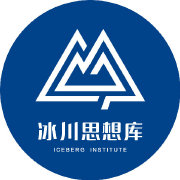







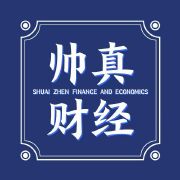

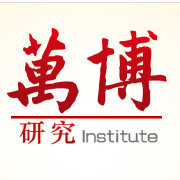


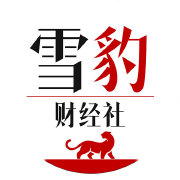


















 第一财经日报
第一财经日报  每日经济新闻
每日经济新闻  贝壳财经视频
贝壳财经视频  尺度商业
尺度商业  财联社APP
财联社APP  量子位
量子位  财经网
财经网  华商韬略
华商韬略